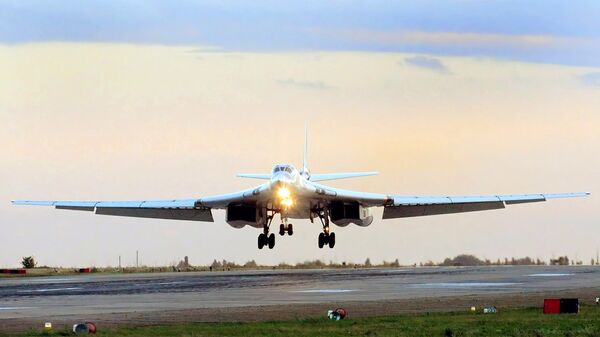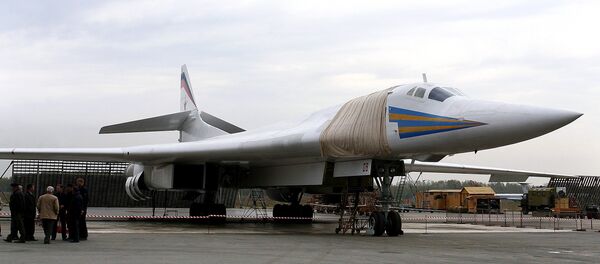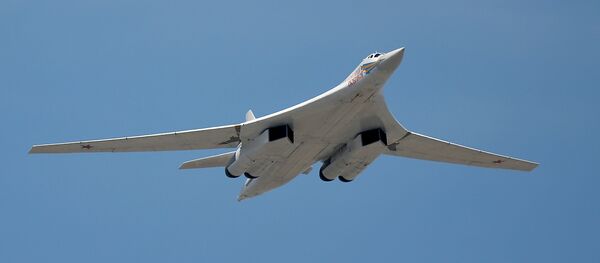Citing Col. Gen. Viktor Bondarev, the commander-in-chief of Russia's Air Force, American journalist Zachary Keck pointed out that Moscow is planning to dramatically boost its arsenal of Tupolev Tu-160 ("White Swan") heavy strategic bombers.
According to Bondarev, "no less than 50 aircraft over time will be purchased in order to cover the costs that will go into production." Currently only 15 Tu-160 strategic bombers remain in service, while about 35 Tu-160s were originally build, Keck noted, adding that by purchasing additional 50 aircraft the Russian Air Force will increase its bomber capabilities by almost 333 percent.
"[The Tu-160] is a perfectly capable nuclear bomber that, in time of war, would fold back its swan-like wings and dart toward its targets at top speed. Once in range, it would launch cruise missiles that would make the last part of their journey low and slow under enemy radar," highlighted Tom Nichols, Professor of National Security Affairs at the Naval War College, as quoted by Keck.
The decision to revive production of the "White Swan" has been purportedly prompted by production delays in Russia's PAK DA next-generation bomber. According to Bondarev, the PAK DA is expected to be delivered to Russia's Air Force by 2023. The new strategic bomber is believed to make its first flight in 2019.
#BreakingNews #Russia has decided to revive its Tupolev Tu-160 "Blackjack" nuclear bomber production 50 jets 2b built pic.twitter.com/59ocF6X1Dy
— Julian Röpcke (@JulianRoepcke) 28 мая 2015
Remarkably, both strategic bombers – the Tu-160 and the PAK DA – would be manufactured simultaneously, Keck emphasized, referring to Bondarev. In addition, Russia plans to further modernize the fifteen Tu-160s which are currently in service.



